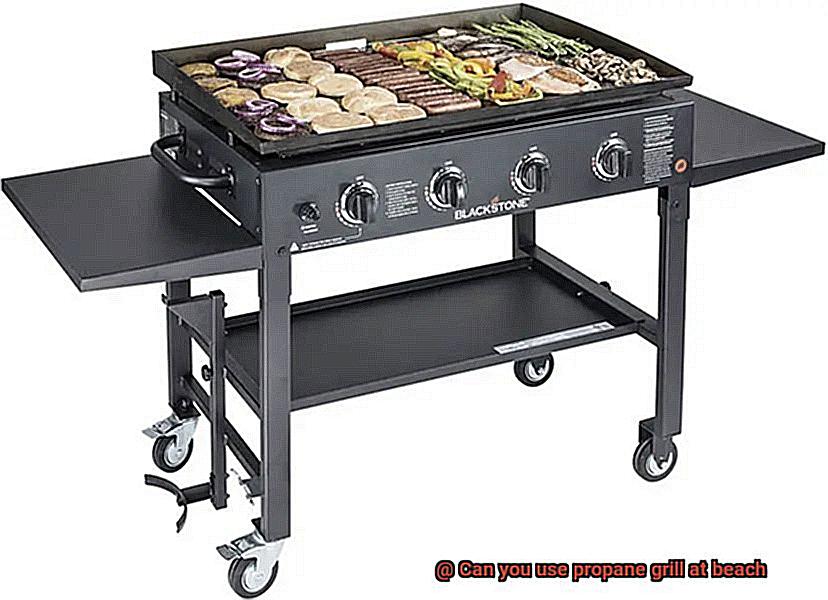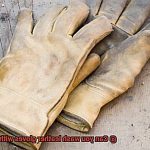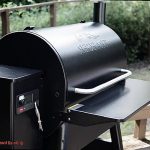Ah, summer at the beach – there’s nothing quite like it. Whether you’re a seasoned beach bum or a newbie, one question that often crops up when planning your day in the sand is whether or not you can fire up a propane grill. The thought of sizzling burgers and fresh seafood while soaking up the sun and surf is certainly tempting, but is it safe and legal?
Well, the answer isn’t as simple as flipping a burger. While many beaches do allow propane grills, there are some crucial precautions and regulations to keep in mind. After all, safety should always be priority number one, and certain elements of a beach environment can make using a propane grill risky business. Plus, different beaches may have different rules and restrictions regarding grilling on-site.
So what’s the scoop? In this blog post, we’ll dive deep into all things propane grilling at the beach. We’ll explore what safety considerations you need to bear in mind before firing up your grill, as well as the legal regulations that govern cooking on sand. And if you discover that propane grilling isn’t permitted at your chosen beach spot (or if lugging around a bulky grill doesn’t sound appealing), don’t worry – we’ve got some alternative cooking methods that will still let you enjoy delicious food by the sea.
So, grab your shades, slather on some sunscreen, and let’s uncover whether or not you can safely and legally use a propane grill on your next seaside adventure.
Contents
What are the Local Beach Regulations?
Before you pack your propane grill and head to the beach, it’s crucial to understand the local beach regulations. These regulations can vary from beach to beach, so it’s essential to research and comprehend them to avoid any surprises or mishaps.
There are various ways to learn about local beach regulations, which include:
- Checking the Beach’s Website or Contacting their Office: The beach’s website or office is an excellent source of information that can provide you with details on what is allowed and what isn’t, including information about grilling. It’s important to read the rules and regulations carefully and adhere to them while at the beach.
- Check with the Local Government or Park Service: Another way to learn about local beach regulations is by checking with the local government or park service responsible for managing the beach. They can provide details on any restrictions or limitations regarding propane grills, such as whether they need a permit or if there are specific designated areas for grilling.
- Fire Restrictions: It’s essential to keep in mind that some beaches may have fire restrictions during certain times of the year, especially during dry seasons or when there is a high risk of wildfires. It’s crucial to follow all fire and safety regulations to ensure everyone’s safety and prevent any accidents from occurring.
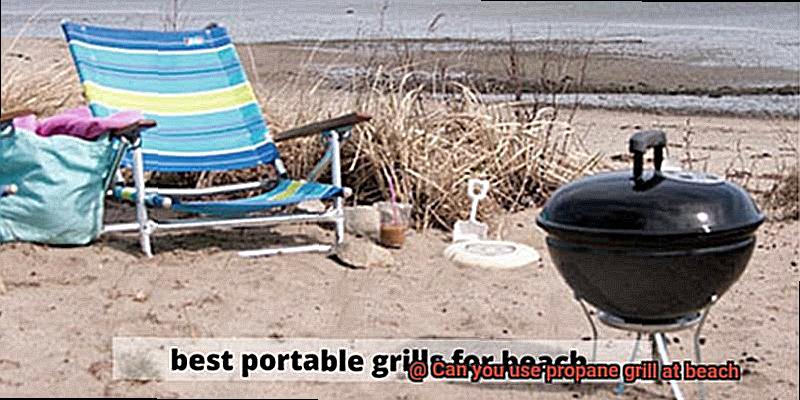
When using propane grills at the beach, safety should be your top priority. Here are some tips to minimize risks:
- Use a high-quality propane grill with sturdy legs and a secure propane tank holder.
- Keep your grill away from any flammable materials, such as dry grass or driftwood.
- Never leave your grill unattended while in use.
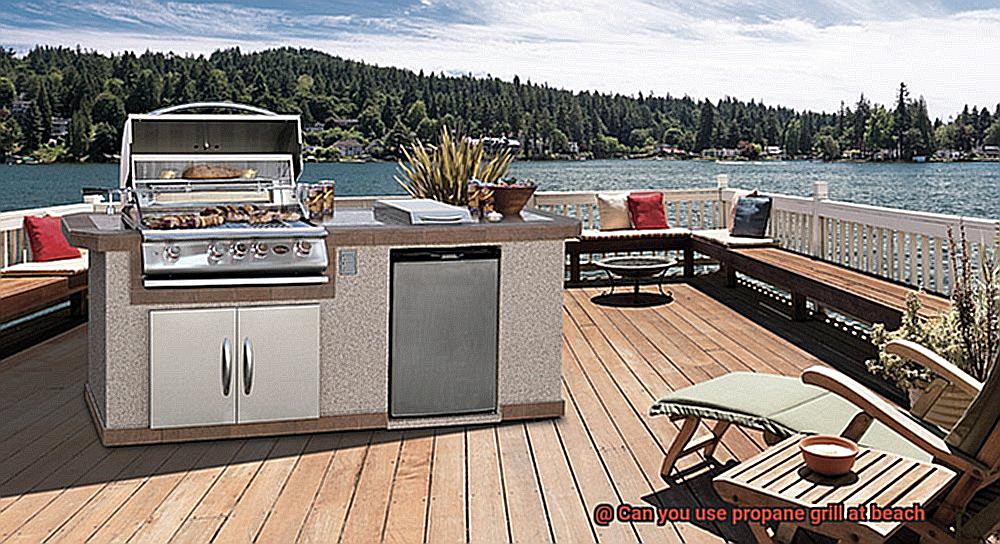
Additionally, it’s advisable to pack extra supplies like cooking oil and utensils since sand can easily get into food and cooking surfaces.
Is Propane Grill a Good Choice for Grilling at the Beach?
The beach is the perfect place to enjoy some sun, sand, and delicious grilled food. But, when it comes to choosing the right grill for your beach barbecue, is a propane grill the best choice? As an expert on this topic, let me delve deeper into the pros and cons of using a propane grill for beach grilling.
Firstly, it’s crucial to ensure that you comply with local regulations before bringing your propane grill to the beach. Some beaches might prohibit grilling altogether, while others may have specific rules regarding the type of grill allowed. Therefore, it’s essential to check with the local beach authorities beforehand to avoid any unwanted surprises.
Assuming that your chosen beach allows grilling, safety should be your top priority. Propane grills can be hazardous if not used correctly in outdoor environments. Windy conditions at the beach can cause flames to flare up and potentially start a fire. To avoid this, make sure that your propane grill is placed on a stable surface and shielded from the wind.
Another significant factor to consider is the amount of propane fuel needed for your grill. Depending on how many items you’re cooking and how long you plan on grilling, you may need to bring multiple propane tanks with you. Keep in mind that transporting these tanks can add extra weight and bulk to your beach gear.
Despite these considerations, there are several advantages to using a propane grill at the beach. They are portable, easy to use, and provide convenience for cooking delicious meals outdoors. With a propane grill, you won’t have to worry about gathering wood or charcoal or adjusting flames manually.
How to Minimize the Risk of Gas Leaks?
Before you start cooking, make sure to minimize the risk of gas leaks by taking necessary precautions. Propane gas is highly flammable and can cause explosions or fires if not handled properly. Here are five sub-sections of tips to help you safely use your propane grill at the beach:
Inspect Your Grill – To ensure that your grill is in good working condition, inspect it for any signs of damage or wear and tear before heading to the beach. Check that all connections are tight and secure, and verify for any leaks by brushing soapy water on all connections and hoses. If bubbles form, replace the affected parts before using the grill.
Transport Your Tank Properly – Store your propane tank in an upright position during transport to and from the beach, securely fastened to prevent it from rolling or tipping. Never leave a propane tank inside a hot car or exposed to direct sunlight, as this can cause pressure to build up inside the tank and increase the risk of leaks.
Set Up Your Grill Safely – Place your grill on a stable surface away from any flammable materials such as grass or dry brush. Keep a fire extinguisher nearby in case of emergencies, and never leave your grill unattended while in use.
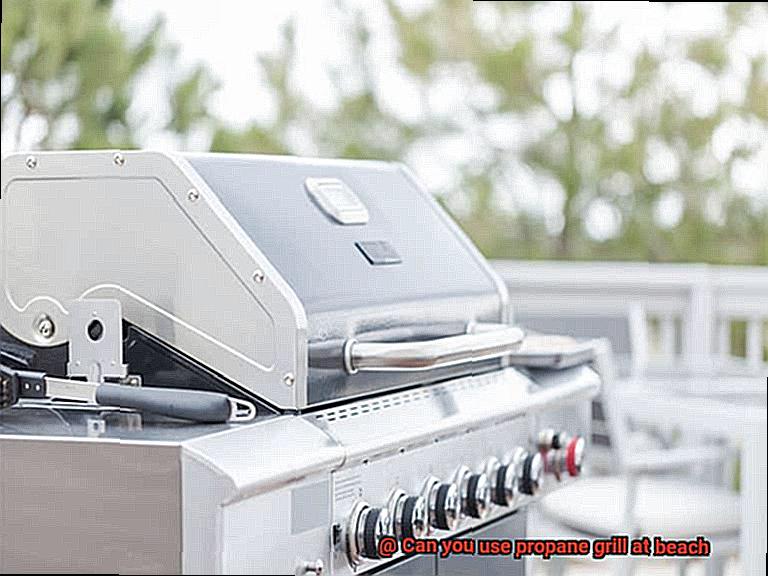
Choose an Appropriate Location – Avoid windy areas as they can cause gas to blow around and increase the risk of a fire or explosion. Choose a location that is sheltered from strong winds. Keep children and pets away from the grill to prevent accidental bumps or knocks that could cause gas leaks.
Don’t Overfill Propane Tanks – Propane tanks should never be overfilled as this can cause excess pressure, which can lead to gas leaks.
Along with these safety tips, it’s also important to follow local beach regulations before grilling at the beach. Some beaches may have designated areas for grilling or prohibit it altogether. Always respect local regulations to ensure a safe and enjoyable experience for everyone.
Lastly, don’t forget about fire safety. Keep your grill away from any flammable materials, such as dry grass or driftwood, and never leave your grill unattended while in use. Beaches can be windy and dry, which can increase the risk of fires caused by sparks or embers from your grill.
Fire Safety Considerations When Using a Propane Grill at the Beach
While a propane grill might seem like the perfect addition to your beach outing, it’s important to prioritize fire safety to avoid accidents. As a seasoned expert on this topic, I’m here to share some crucial fire safety considerations that you should keep in mind when using a propane grill at the beach.
First and foremost, make sure to check with local authorities and park regulations to ensure that grilling is allowed on the beach. Some beaches may have specific rules and restrictions in place for grilling, such as designated grilling areas or bans on open flames. Once you’ve confirmed that it’s allowed, it’s time to set up your grill safely.
When setting up your propane grill, choose a stable and level surface well away from any flammable materials, such as beach umbrellas or dry brush. Additionally, ensure that the grill is placed at least 10 feet away from any structures, including beach houses or lifeguard towers. This will allow for proper air circulation and reduces the risk of accidental fires.
Keeping a fire extinguisher nearby is crucial in case of an emergency. A bucket of sand or water can also be useful for small fires or flare-ups. Proper maintenance and cleaning of the propane grill are also essential for fire safety. Before use, check the propane tank for leaks or damage, and make sure all connections are secure. After each use, clean the grill thoroughly to prevent grease buildup that can increase the risk of fires.
Furthermore, always supervise the grill while it’s in use and never leave it unattended. Keep children and pets away from the grill area at all times. Never attempt to move or adjust the grill while it’s hot. By following these simple yet vital fire safety considerations, you can enjoy a safe and enjoyable grilling experience at the beach with your propane grill.
Practical Concerns to Keep in Mind When Using a Propane Grill at the Beach
Don’t forget to bring your trusty propane grill along. However, before you start cooking up a storm, there are a few practical concerns that you should keep in mind to ensure that your beach grilling experience is safe, efficient, and enjoyable.
First and foremost, it’s crucial to check with the local authorities regarding any regulations or restrictions on using propane grills on the beach. Different beaches may have different rules and guidelines, so it’s best to confirm these details in advance to avoid any potential fines or penalties.
Another practical concern when using a propane grill at the beach is the unpredictable and strong wind. To maintain a steady flame and prevent any mishaps, try to position your grill in a sheltered area or use a wind guard to protect the flame.
Sand and debris can also pose significant problems for your grill’s performance. Sand can easily get into the burners or clog up the propane tank valve, which can be hazardous. To prevent this from happening, place your grill on a stable surface and use a drip tray or mat to catch any drippings.
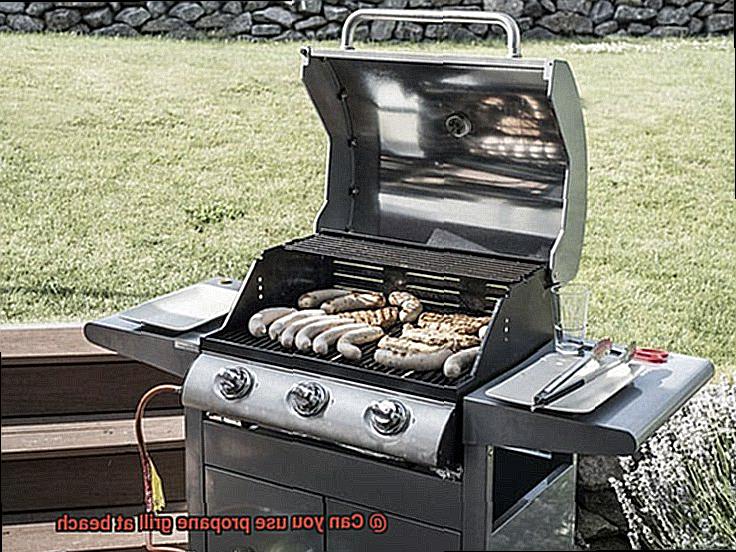
Safety should always be your top priority when using a propane grill at the beach. Make sure that your grill is stable and secure, and never leave it unattended while it is in use. Keep a fire extinguisher nearby in case of emergencies and make sure that all propane connections are secure and tight.
To summarize, here’s a quick checklist of practical concerns to keep in mind when using a propane grill at the beach:
- Check local regulations or restrictions beforehand
- Position your grill in a sheltered area or use a wind guard
- Place your grill on a stable surface and use a drip tray or mat
- Ensure safety by securing your grill, never leaving it unattended, and having a fire extinguisher nearby
Tips for Safely and Responsibly Grilling with a Propane Grill at the Beach
Grilling with a propane grill at the beach is a fantastic way to enjoy the great outdoors and indulge in delicious grilled food. However, before you start grilling, it’s crucial to know how to do it safely and responsibly. Here are five tips to help ensure a safe and enjoyable grilling experience:
Know the Rules
Some beaches may have specific regulations regarding grilling or may not allow it altogether. So, before you head out to the beach with your propane grill, make sure to check with the local authorities or park rangers for any rules or restrictions.
Choose a Safe Location
When selecting a spot to set up your grill, ensure that it’s in an open area away from any flammable materials like dry grass or tree branches. Avoid setting up your grill near other beachgoers or high traffic areas where someone could accidentally bump into the grill.
Use Propane Tanks Safely
Always use propane tanks that are designed for outdoor use and make sure that they are properly secured to prevent them from tipping over. It’s also critical never to store propane tanks in direct sunlight or in a hot car as this can cause them to overheat and potentially explode.
Keep a Fire Extinguisher Nearby
It’s better to be safe than sorry when it comes to grilling with propane at the beach. That’s why you should always keep a fire extinguisher nearby in case of an emergency. It’s also a good idea to have a bucket of sand or water on hand in case you need to quickly extinguish any fires.
Clean Up After Yourself
Grilling at the beach can be messy, so make sure to clean up after yourself when you’re done. Dispose of any charcoal or ashes properly and pack up your propane grill and all of your supplies before leaving the beach.
-EZSHaC3ZvA” >
Conclusion
In conclusion, beach grilling with a propane grill can be a thrilling and memorable experience, but it’s crucial to prioritize safety and adhere to local regulations. Before embarking on your adventure, take the time to research the beach’s rules and regulations and choose a safe spot away from flammable materials.
To ensure that your propane grill is in tip-top shape, inspect it for any signs of damage or wear and tear before using it. Make sure to transport your propane tank safely and keep a fire extinguisher nearby in case of emergencies. And when you’re done grilling up a storm, clean up after yourself to leave the beach as pristine as you found it.
Propane grills are an excellent choice for beachside cookouts due to their portability, ease of use, and ability to cook up mouth-watering meals outdoors. However, gusty conditions at the beach can cause flames to flare up unexpectedly. As such, always ensure that your propane grill is placed on a stable surface and shielded from the wind.
Remember that safety should always come first when using a propane grill at the beach. By following these tips and taking necessary precautions, you can enjoy a safe and satisfying grilling experience by the sea.

